![[Home]](https://ludism.org/logo/beads.gif)
Last edit
Summary: [|][|] -> |
Changed:
< || '''Move #''' || '''Colour''' || '''Idea Card''' || '''Icon''' || '''Status''' || '''Player''' || '''Comment''' ||
< || 1 || orange || struggle || http://www.ludism.org/gpg/struggle.gif || # (new chain) || ["Dunbar Aitkens"] || n/a ||
< || 2 || orange || joy || http://www.ludism.org/gpg/joy.gif || P (permitted) || ["Dunbar Aitkens"] || Sometimes you experience more joy when you achieve something if you had to struggle for it than if you achieved it easily. ||
< || 3 || orange || metamorphosis || http://www.ludism.org/gpg/metamorp.gif || P (permitted) || ["Kisa Griffin"] || The process of struggle ''itself'' can be worthwhile. ||
< || 4 || orange || emotional manipulation || http://www.ludism.org/gpg/emotiona.gif || P (permitted) || ??? || ??? ||
< || 5 || orange || society as active/passive hierarchy || http://www.ludism.org/gpg/societya.gif || P (permitted) || ["Dunbar Aitkens"] || Once you set a revolution in action, how do you stop the vicious people needed to fight it from taking over afterward? ||
< || 6 || orange || art vs. nature || http://www.ludism.org/gpg/artvsnat.gif || P (permitted) || ["Ron Hale-Evans"] || The image one has of the future (of a revolution, or anything else) is an abstraction and often does not match the reality. ||
< || 7 || orange || need not to judge || http://www.ludism.org/gpg/avoiding.gif || P (permitted) || ["Kisa Griffin"] || But- we don't need to judge outcomes so harshly. It may be that whatever happens is good. ||
< || 8 || orange || syntax || http://www.ludism.org/gpg/syntax.gif || O (okayed) || ??? || ??? ||
< || 9 || green || anthropomorphism || http://www.ludism.org/gpg/anthropo.gif || # (new chain) || ["Kisa Griffin"] || People project human experiences onto the actions of animals, but we have no way of really knowing if they're thinking what we think they're thinking. ||
< || 10 || green || ambivalence || http://www.ludism.org/gpg/ambivale.gif || O (okayed) || ??? || Nonhuman nonverbal language is ambiguous. ||
< || 11 || green || helplessness || http://www.ludism.org/gpg/helpless.gif || O (okayed) || ["Ron Hale-Evans"] || Even though you cannot always know what nonhuman nonverbal language means, there are some near-universals, such as suffering, that you can usually deduce. ||
< || 12 || green || species specific norms || http://www.ludism.org/gpg/niches.gif || O (okayed) || LionKimbro || Every animal species has its own nonverbal language. They don't try to mimic each other's ways of doing things. ||
< || 13 || green || coding || http://www.ludism.org/gpg/coding.gif || O (okayed) || LionKimbro || It is possible to translate (encode) the symbols of the language of one species into the language of another species. ||
< || 14 || green || syntax ||http://www.ludism.org/gpg/syntax.gif || O (okayed) || LionKimbro || Perhaps there is a universal grammar of non-verbal communications. ||
< || 15 || green || intuition || http://www.ludism.org/gpg/intuit.gif || P (permitted) || ??? || ??? ||
< || 16 || green || symbolic handles || ??? || P (permitted) || LionKimbro || The conscious thoughts in our heads are symbolic handles that come from thought occuring on an unconscious level. The unconscious processing is the main processing- the conscious thoughts may be more of an after-effect. ||
< || 17 || green || gestalt || http://www.ludism.org/gpg/gestalt.gif || P (permitted) || ??? || The seperation between the conscious emmanations and the unconscious ("unrepresented") thoughts is likely that "one bleeds over into the other"- on the surface we can distinguish, but looked at in detail, it becomes hard to distinguish. ||
< || 18 || green || art vs. nature || http://www.ludism.org/gpg/artvsnat.gif || P (permitted) || ??? || ??? ||
< || 19 || red || syntax || http://www.ludism.org/gpg/syntax.gif || # (new chain) || ??? || n/a ||
< || 20 || red || hidden potential || http://www.ludism.org/gpg/hiddenpo.gif || O (okayed) || ["Ron Hale-Evans"] || The use of constraints in art (syntax) liberates the hidden potential in an artform. Compare the OuLiPo. ||
< || 21 || ??? || freedom || http://www.ludism.org/gpg/freedom.gif || ??? || ["Kisa Griffin"] || ??? ||
< || 22 || red || myth || http://www.ludism.org/gpg/myth.gif || O (okayed) || LionKimbro || The idea that the realms of experience are a canvas, and that freedom and constrain pop out of that canvas- is a myth. (Maybe true, maybe false, but it's a guiding myth.) ||
< || 23 || red || nature tending toward perfection || http://www.ludism.org/gpg/naturalp.gif || O (okayed) || ["Ron Hale-Evans"] || Extending the myth, there is an organising principle that generates order out of disorder and the Universe out of random bits. Compare ''Permutation City'' by Greg Egan. ||
< || 24 || red || recursion || http://www.ludism.org/gpg/return.gif || P (permitted) || ["John Braley"] || According to the myth discussed, humans create mathematics, and mathematics creates the universe, which contains humans. (The card "return" was used for the concept "recursion" to end the game.) ||
to
> | '''Move #''' | '''Colour''' | '''Idea Card''' | '''Icon''' | '''Status''' | '''Player''' | '''Comment''' |
> | 1 | orange | struggle | http://www.ludism.org/gpg/struggle.gif | # (new chain) | ["Dunbar Aitkens"] | n/a |
> | 2 | orange | joy | http://www.ludism.org/gpg/joy.gif | P (permitted) | ["Dunbar Aitkens"] | Sometimes you experience more joy when you achieve something if you had to struggle for it than if you achieved it easily. |
> | 3 | orange | metamorphosis | http://www.ludism.org/gpg/metamorp.gif | P (permitted) | ["Kisa Griffin"] | The process of struggle ''itself'' can be worthwhile. |
> | 4 | orange | emotional manipulation | http://www.ludism.org/gpg/emotiona.gif | P (permitted) | ??? | ??? |
> | 5 | orange | society as active/passive hierarchy | http://www.ludism.org/gpg/societya.gif | P (permitted) | ["Dunbar Aitkens"] | Once you set a revolution in action, how do you stop the vicious people needed to fight it from taking over afterward? |
> | 6 | orange | art vs. nature | http://www.ludism.org/gpg/artvsnat.gif | P (permitted) | ["Ron Hale-Evans"] | The image one has of the future (of a revolution, or anything else) is an abstraction and often does not match the reality. |
> | 7 | orange | need not to judge | http://www.ludism.org/gpg/avoiding.gif | P (permitted) | ["Kisa Griffin"] | But- we don't need to judge outcomes so harshly. It may be that whatever happens is good. |
> | 8 | orange | syntax | http://www.ludism.org/gpg/syntax.gif | O (okayed) | ??? | ??? |
> | 9 | green | anthropomorphism | http://www.ludism.org/gpg/anthropo.gif | # (new chain) | ["Kisa Griffin"] | People project human experiences onto the actions of animals, but we have no way of really knowing if they're thinking what we think they're thinking. |
> | 10 | green | ambivalence | http://www.ludism.org/gpg/ambivale.gif | O (okayed) | ??? | Nonhuman nonverbal language is ambiguous. |
> | 11 | green | helplessness | http://www.ludism.org/gpg/helpless.gif | O (okayed) | ["Ron Hale-Evans"] | Even though you cannot always know what nonhuman nonverbal language means, there are some near-universals, such as suffering, that you can usually deduce. |
> | 12 | green | species specific norms | http://www.ludism.org/gpg/niches.gif | O (okayed) | LionKimbro | Every animal species has its own nonverbal language. They don't try to mimic each other's ways of doing things. |
> | 13 | green | coding | http://www.ludism.org/gpg/coding.gif | O (okayed) | LionKimbro | It is possible to translate (encode) the symbols of the language of one species into the language of another species. |
> | 14 | green | syntax |http://www.ludism.org/gpg/syntax.gif | O (okayed) | LionKimbro | Perhaps there is a universal grammar of non-verbal communications. |
> | 15 | green | intuition | http://www.ludism.org/gpg/intuit.gif | P (permitted) | ??? | ??? |
> | 16 | green | symbolic handles | ??? | P (permitted) | LionKimbro | The conscious thoughts in our heads are symbolic handles that come from thought occuring on an unconscious level. The unconscious processing is the main processing- the conscious thoughts may be more of an after-effect. |
> | 17 | green | gestalt | http://www.ludism.org/gpg/gestalt.gif | P (permitted) | ??? | The seperation between the conscious emmanations and the unconscious ("unrepresented") thoughts is likely that "one bleeds over into the other"- on the surface we can distinguish, but looked at in detail, it becomes hard to distinguish. |
> | 18 | green | art vs. nature | http://www.ludism.org/gpg/artvsnat.gif | P (permitted) | ??? | ??? |
> | 19 | red | syntax | http://www.ludism.org/gpg/syntax.gif | # (new chain) | ??? | n/a |
> | 20 | red | hidden potential | http://www.ludism.org/gpg/hiddenpo.gif | O (okayed) | ["Ron Hale-Evans"] | The use of constraints in art (syntax) liberates the hidden potential in an artform. Compare the OuLiPo. |
> | 21 | ??? | freedom | http://www.ludism.org/gpg/freedom.gif | ??? | ["Kisa Griffin"] | ??? |
> | 22 | red | myth | http://www.ludism.org/gpg/myth.gif | O (okayed) | LionKimbro | The idea that the realms of experience are a canvas, and that freedom and constrain pop out of that canvas- is a myth. (Maybe true, maybe false, but it's a guiding myth.) |
> | 23 | red | nature tending toward perfection | http://www.ludism.org/gpg/naturalp.gif | O (okayed) | ["Ron Hale-Evans"] | Extending the myth, there is an organising principle that generates order out of disorder and the Universe out of random bits. Compare ''Permutation City'' by Greg Egan. |
> | 24 | red | recursion | http://www.ludism.org/gpg/return.gif | P (permitted) | ["John Braley"] | According to the myth discussed, humans create mathematics, and mathematics creates the universe, which contains humans. (The card "return" was used for the concept "recursion" to end the game.) |
GlassPlateGame played at the house of Timothy Higgins in Mill Creek, Washington.
| Move # | Colour | Idea Card | Icon | Status | Player | Comment |
| 1 | orange | struggle | 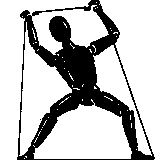 | # (new chain) | Dunbar Aitkens | n/a |
| 2 | orange | joy | 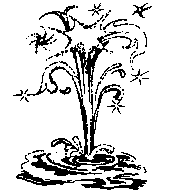 | P (permitted) | Dunbar Aitkens | Sometimes you experience more joy when you achieve something if you had to struggle for it than if you achieved it easily. |
| 3 | orange | metamorphosis | 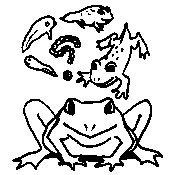 | P (permitted) | Kisa_Griffin? | The process of struggle itself can be worthwhile. |
| 4 | orange | emotional manipulation | 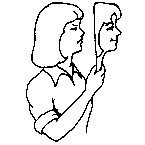 | P (permitted) | ??? | ??? |
| 5 | orange | society as active/passive hierarchy | 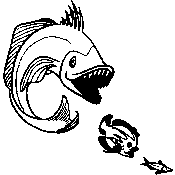 | P (permitted) | Dunbar Aitkens | Once you set a revolution in action, how do you stop the vicious people needed to fight it from taking over afterward? |
| 6 | orange | art vs. nature | 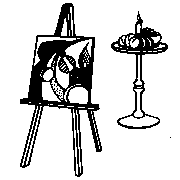 | P (permitted) | Ron_Hale-Evans? | The image one has of the future (of a revolution, or anything else) is an abstraction and often does not match the reality. |
| 7 | orange | need not to judge | 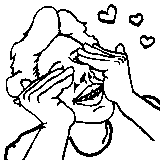 | P (permitted) | Kisa_Griffin? | But- we don't need to judge outcomes so harshly. It may be that whatever happens is good. |
| 8 | orange | syntax | 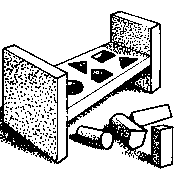 | O (okayed) | ??? | ??? |
| 9 | green | anthropomorphism | 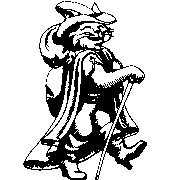 | # (new chain) | Kisa_Griffin? | People project human experiences onto the actions of animals, but we have no way of really knowing if they're thinking what we think they're thinking. |
| 10 | green | ambivalence | 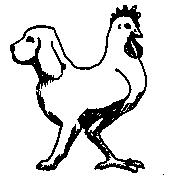 | O (okayed) | ??? | Nonhuman nonverbal language is ambiguous. |
| 11 | green | helplessness | 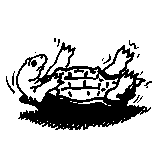 | O (okayed) | Ron_Hale-Evans? | Even though you cannot always know what nonhuman nonverbal language means, there are some near-universals, such as suffering, that you can usually deduce. |
| 12 | green | species specific norms | 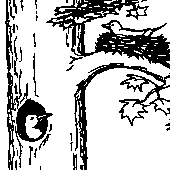 | O (okayed) | LionKimbro | Every animal species has its own nonverbal language. They don't try to mimic each other's ways of doing things. |
| 13 | green | coding | 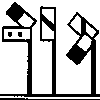 | O (okayed) | LionKimbro | It is possible to translate (encode) the symbols of the language of one species into the language of another species. |
| 14 | green | syntax |  | O (okayed) | LionKimbro | Perhaps there is a universal grammar of non-verbal communications. |
| 15 | green | intuition | 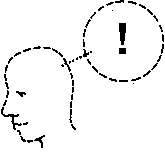 | P (permitted) | ??? | ??? |
| 16 | green | symbolic handles | ??? | P (permitted) | LionKimbro | The conscious thoughts in our heads are symbolic handles that come from thought occuring on an unconscious level. The unconscious processing is the main processing- the conscious thoughts may be more of an after-effect. |
| 17 | green | gestalt | 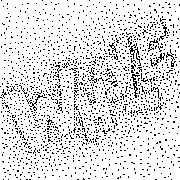 | P (permitted) | ??? | The seperation between the conscious emmanations and the unconscious ("unrepresented") thoughts is likely that "one bleeds over into the other"- on the surface we can distinguish, but looked at in detail, it becomes hard to distinguish. |
| 18 | green | art vs. nature |  | P (permitted) | ??? | ??? |
| 19 | red | syntax |  | # (new chain) | ??? | n/a |
| 20 | red | hidden potential | 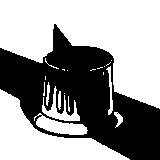 | O (okayed) | Ron_Hale-Evans? | The use of constraints in art (syntax) liberates the hidden potential in an artform. Compare the OuLiPo?. |
| 21 | ??? | freedom | 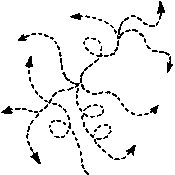 | ??? | Kisa_Griffin? | ??? |
| 22 | red | myth | 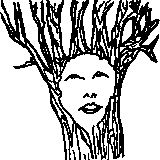 | O (okayed) | LionKimbro | The idea that the realms of experience are a canvas, and that freedom and constrain pop out of that canvas- is a myth. (Maybe true, maybe false, but it's a guiding myth.) |
| 23 | red | nature tending toward perfection | 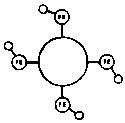 | O (okayed) | Ron_Hale-Evans? | Extending the myth, there is an organising principle that generates order out of disorder and the Universe out of random bits. Compare Permutation City by Greg Egan. |
| 24 | red | recursion |  | P (permitted) | John_Braley? | According to the myth discussed, humans create mathematics, and mathematics creates the universe, which contains humans. (The card "return" was used for the concept "recursion" to end the game.) |
According to the photos I took of the board, somewhere in the Orange chain near the beginning of the game, someone played the "emotional manipulation" card:

IIRC, this was between "society as active/passive hierarchy" and "art vs. nature", around Turn 5, but I can't see how to fit it in. Dunbar? Anyone?
Also, the graphic for "symbolic handles" does not seem to be readily available online.
-- Ron_Hale-Evans? [[DateTime?(2004-06-20T09:20:27Z)]]
I just realised there was no Turn 4 listed, and that this was where "emotional manipulation" went. Dunbar, was this Permitted, or Okayed?